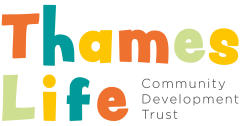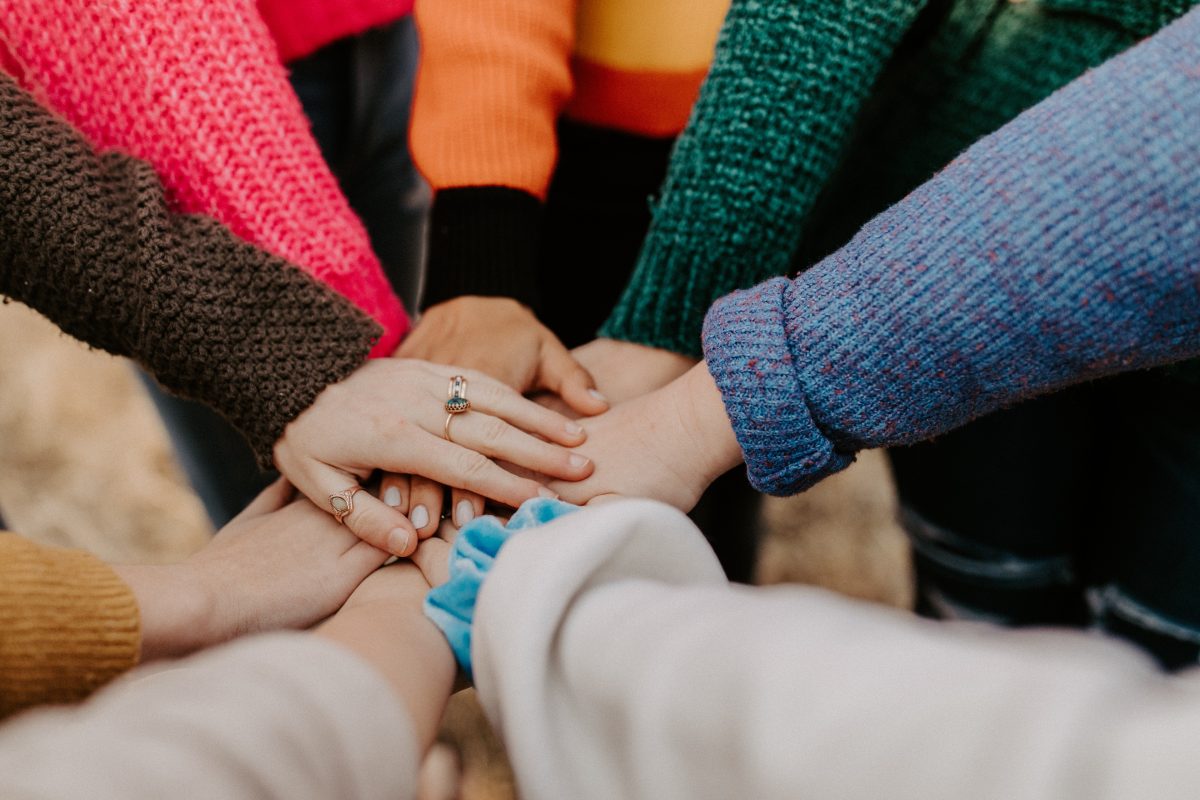Working for a Community Development Trust like Thames Life it is important that my colleagues and I are clear on what community work is and why it is important. Indeed, to be as effective and impactful as we can be it is necessary for all those in the area we work to be clear on this too – residents, community groups, health partners, council and developer alike! It feels like there is still plenty of work to be done to reach a point where all involved appreciate what community work is, who is best placed to do it, and why it is crucial to a healthy and sustainable community.
As a team we were reminded of this in a recent task we all were set internally to answer these questions for ourselves and then share with the team. Interestingly many of us in the team do not come from a purely community work background and so we bring lots of different approaches and viewpoints to the table.
For me community work is about supporting residents and community groups by:
- Meeting, listening and forming trusting relationships over an extended period;
- Creating opportunities for them to come together with each other, develop relationships, support each other, learn new skills and explore new ideas and projects;
- Shifting attitudes to and aspirations around power among residents, the voluntary and community sector and wider partners (like health partners, council and developer) to a point where all recognise the power that the community possesses, and support residents and community groups to play a leading role in shaping their neighbourhood and the decisions made about it.
I first joined Thames Life as a Community Organiser back in 2017 when we first launched as Thames Ward Community Project, operating out of Riverside School as our host organisation. I had spent some time before this volunteering at another community development trust in North London (shout out to The Selby Trust) where I had worked closely with staff there and gained some basic community organiser training (and later went on to gain further community organising qualifications from another Community Development Trust in South London – shout out High Trees). However, I felt I had limited experience in community work coming into the role outside of my 10+ years coaching basketball in my hometown of Milton Keynes. Up until that time I had been in academia both as a student and a postdoctoral researcher studying urban diversity. I enjoyed my time in research but for a long time had a nagging feeling that it just wasn’t quite the right fit for me for two main reasons.
Firstly, I began to feel like research was always starting in the wrong place. I was always researching either what I (or more often a more senior researcher) wanted to research and when I would be out meeting people in the community, getting to know them, conducting participant observation, interviews or focus groups I would realise that what I was asking about was not necessarily the most pressing or important issue for those I was speaking to.
Secondly, I felt like research always ended in the wrong place. By this I mean that the outputs or results of my work were often destined for reports, journal articles or books which the people I had spoken to would never read and would ultimately leave me feeling a lack of real connection to or impact on the lives of the people I had met and come to care about. I wasn’t as motivated as others by the desire to get my work published because it didn’t feel like a substantive end goal for me.
In shifting away from academia I wanted to find a way to feel like I was making more of a difference (cliche I know) and community work, specifically community organising, spoke to me at that moment. I had enjoyed meeting residents, young people, community groups and social businesses as part of my research and it was at this more local level that I felt I could make more of a positive impact and gain more job satisfaction. By its nature community organising starts in the right place for me because it begins with listening to the community and understanding what they care about, why they care about it and what change they want to see. Having established that understanding of ‘the world as it should be’ in the minds of local people and groups it is all about helping them to achieve that change by building capacity and relationships. In my experience local people and community groups are best placed to identify the priorities for their neighbourhoods and often best placed to identify and deliver the solutions too, or at least can add significant value when supported to work in meaningful partnership with wider stakeholders.
In short, the future I am working towards for residents and community groups locally is one where they all recognise themselves, and are recognised by other decision-makers locally, as leaders with the potential to positively shape the future of their community. That feels important to me and it is what drives me to do the work that I do.
Jamie Kesten
Deputy CEO

